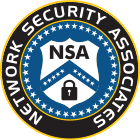Technological advances have made it possible for medical offices to store more information on secure servers. This makes it vital for medical practices to implement procedures that encourage an optimal level of HIPAA network security. Not only will strong cyber security keep your patients’ sensitive information safe, but it will also promote adherence to HIPAA guidelines.
4 Ways to Foster Better HIPAA Network Security at Your Medical Facility

1. Place Emphasis on HIPAA Compliance
Whether you run a small, medium or large medical office, it’s important to emphasize HIPAA compliance to your employees. Even small offices can serve as the target for data breaches. Ensure you have the appropriate HIPAA network security procedures in place to prevent hackers from accessing your data. HIPAA violations can be extremely costly for your organization. Your company will have to pay to remedy the violation, and customers may be reluctant to use your medical office if they feel you can’t be trusted with their information.
2. Implement Strict Rules Regarding the Use and Creation of Passwords
Passwords are an essential layer of security for your medical office. You should make sure all your employees (regardless of their position) know to avoid using passwords that are easy to guess. Instead, they should create passwords that implement multiple items, like words, letters, numbers, and characters. Employees should keep passwords private and take care to change them regularly. They should avoid writing them down and use a secure password manager, like LastPass, instead.
3. Utilize Safe Data Sharing Mediums
When you need to virtually store or share data, check that you always utilize a medium that encourages HIPAA network security. Stay away from programs designed for sharing and storing consumer data. Though these programs are effective for sharing files, they don’t contain the necessary safeguards to adequately protect private information.
It’s also important to set up secure, encrypted networks that provide employees with a safe means of sending and receiving virtual files and data. Not only should your office use an internal Wi-Fi network separate from your guest network, but you must password-protect the network and use a strong firewall.
4. Make Sure Employees Understand Your Expectations
A set of comprehensive cyber security rules won’t be effective if your employees don’t understand your expectations. All employees should receive thorough training so they know what practices they’re required to adhere to, the steps they must take to document their adherence and how to use programs and safeguards designed to optimize network security.
To keep your HIPAA network security up to date, Network Security Associates provides 24/7 monitoring of your systems, as well as frequent data backups and software updates. Contact us at 702-547-9800 to schedule your free network security assessment today.

